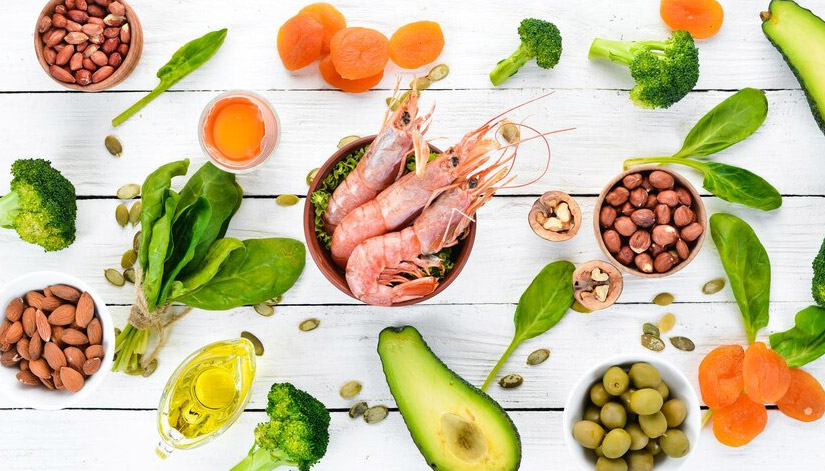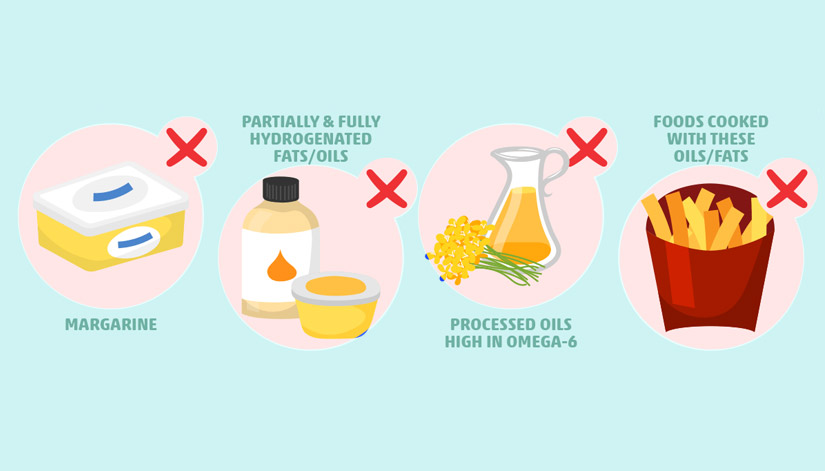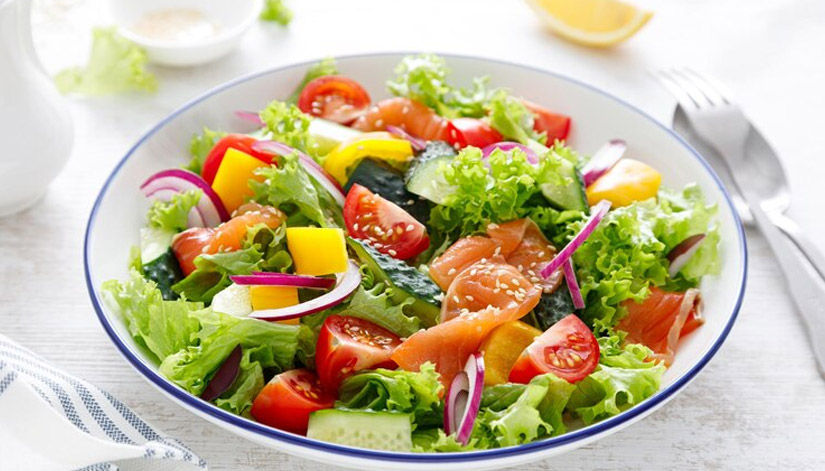The keto diet is a high-fat, moderate-protein, and low-carb diet. Carbohydrates are the main source of energy for our body. But when on the keto diet, carb intake is strictly restricted to 20-50 grams per day. This restriction puts the body into a metabolic state called ketosis. This is where the body starts breaking down stored fats into molecules called ketones to use as a source of energy in the absence of blood glucose from food.
Eating a keto diet helps you to reduce weight, and the risk of heart disease, and improves brain functions. In short, the keto diet improves your health.
Now the question is: what exactly can you eat when you are on keto?
The keto diet isn’t right for everyone. Before you embark on the keto diet it’s essential to find out which food is suitable for the keto diet and which isn’t. In addition, you should also determine whether you are a suitable candidate for it. The keto diet is helpful for those who want to reduce their weight or want to control their blood sugar levels. Now that everything is clear, start planning your keto diet. Though you are well aware that the keto diet is a high-fat and low-carb diet. Still, many food items are healthy, while some are not.
Here is the list of food items that while on keto you should consume or avoid.
Foods you can eat while on keto.

Fish and seafood
Fish are a rich source of vitamin B12, minerals like manganese, and selenium, and healthy fats like omega 3. It’s also protein-rich and low in carbs. Therefore, they help lower blood sugar levels and increase insulin sensitivity. They are also capable of improving mental health.
Consume low-carb veggies
Non-starchy veggies are low in carbs, but rich in many nutrients like vitamin C and many minerals. Include broccoli, cauliflower, spinach, green beans, zucchini, and bell peppers.
Nuts and seeds
Nuts are rich in fats, minerals, and fiber, and less in carbs. As a result, you should include them in your diet, but not all nuts are keto-friendly. Choose wisely avoid cashews, and pistachios completely, and munch on other nuts carefully, as they are protein-rich and excess protein can throw your body out of ketosis.
Cheese
Cheese is rich in fat and zero in carbs. Also rich in proteins and minerals, making it an ideal choice for keto followers.
Greek yogurt
It’s rich in protein and calcium. Studies have shown that both protein and calcium reduce appetite and promote fullness. Therefore, it is an excellent choice for people looking to reduce their weight.
Berries
Fruits contain a large number of carbs, but berries are an exception and can be enjoyed in small quantities.
Avocado
Although grouped among vegetables as fruit, avocados are neither sweet nor sour. Eating avocados at a meal makes you feel full.
Coconut
A small piece of coconut offers 3g of carbs and 4g of fiber plus it doubles the amount of fat provided.
Olive oil
It is rich in mono-saturated fatty acids, thereby reducing inflammation and increasing blood flow. Therefore, it is effective at controlling many heart diseases.
Almond milk
Cow milk or whole milk is rich in fat. But still not keto-friendly, because even a single cup can give you plenty of carbs, so switch to almond milk instead.
Eggs
High in protein, vitamin B, and minerals, and zero in carbs. It helps improve eye health.
Dark chocolate and cocoa powder
Cocoa is also known as a super fruit because it’s rich in antioxidants and dark chocolates are rich in flavanols, which may reduce the risk of heart diseases
List of foods you should avoid while on keto

- Whole grains
- Starchy vegetables
- High sugar-content fruits
- Juices
- Carbonated drinks
- Honey, sugar in any form
- Processed food
One last thought
While keto diet plans seem simple to some people, they may be complicated to others. As with any diet, the keto diet also has its side effects, so one must be aware of them before embarking on the diet. If you have a medical history of high blood pressure, diabetes, or any symptoms of heart disease, be sure to consult your doctor first.

